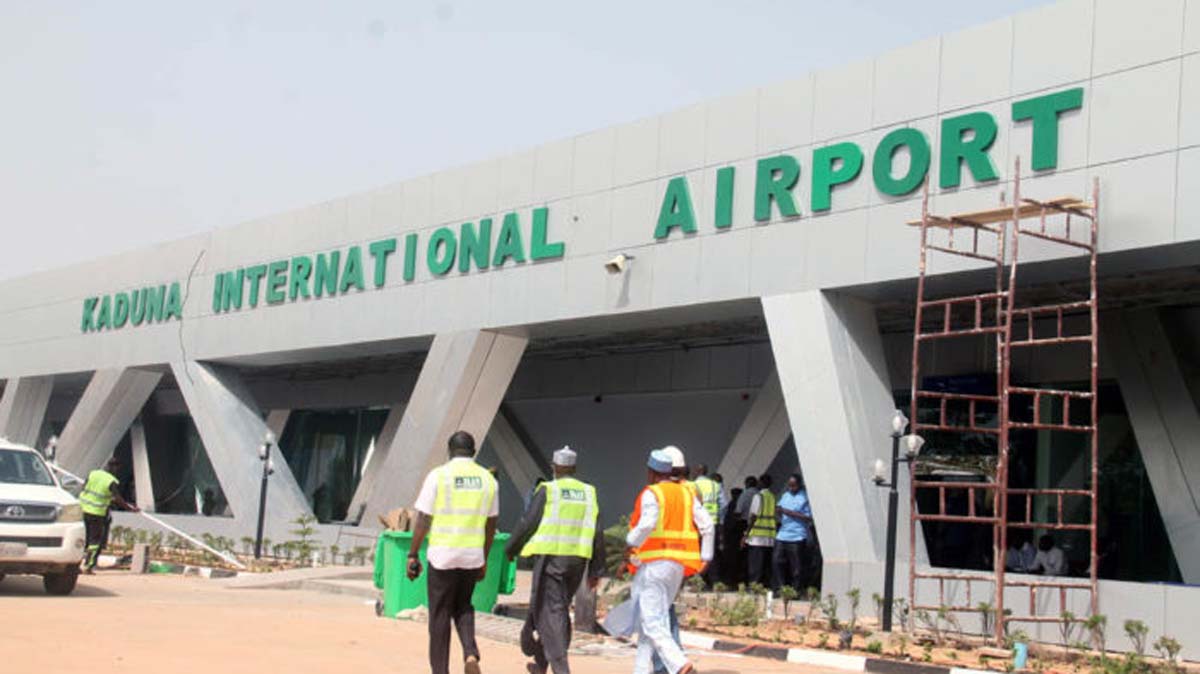- Kaduna Airport, Disaster Waiting to Happen, Say Reps
Members of the House of Representatives on Thursday condemned aviation operations at the Kaduna International Airport, thereby making a dramatic U-turn from their earlier position.
They said the airport fell short of the safety standards for both domestic and international flight operations.
The Kaduna airport is serving as a temporary alternative to the Nnamdi Azikiwe International Airport, Abuja, whose runway is undergoing reconstruction.
The closure of the Abuja airport is into its third week and the repairs will last for another three weeks, according to the original work plan of the Federal Government.
Four weeks ago, the same lawmakers had passed a resolution supporting the closure of the airport and giving the nod to the Kaduna airport to serve as an alternative.
But, on Thursday, after flying into Kaduna, the lawmakers changed their stance and began condemning the airport.
“God forbid that an aircraft should drop from the skies due to our own errors. This is what we should not pray to happen. As we speak, we have aircraft flying in the air. It can happen to anybody. Safety standards are not being adhered to at the airport,” the Chairman, House Committee on Loans, Aids and Debt Management, Mr. Adeyinka Ajayi, told his colleagues.
Ajayi had moved a motion on the need for the aviation authorities to review and ensure that the Kaduna International Airport complied with operational and safety requirements as promised prior to the closure of the Abuja airport.
He cited a personal experience of witnessing aviation fuel being discharged from haulage trucks into aircraft at the airport without purifying the fuel.
Ajayi also said ramp marking rules were abused at the airport as they were “violated by unauthorised users, who go right through the ramp marks.”
He added, “Aircraft manoeuvring and parking space is inadequate to accommodate the high number of aircraft now operating in and out of the airport.
“Further disturbed that some aviation fuel marketers have been allegedly transferring Jet A-1 from bulk road tankers directly into bowers right on the tarmac and discharging same into aircraft; this poses a lot of danger to passengers and aircraft safety.”
The Chairman, House Committee on Foreign Relations, Ms. Nnenna Ukeje, stated that the lives of passengers and aircraft were exposed to danger at the Kaduna airport.
She noted that the space provided for passengers and parking for aircraft was inadequate and could easily lead to accidents.
Ukeje recalled how she spent close to two hours after landing at the airport, struggling to get her luggage and exit the environment.
“The Kaduna airport experiment has obviously failed,” she stated.
Another member, Mr. Hassan Saleh, told the House that he had been to the airport and that all he could see was total disappointment.
Saleh noted, “It is a disaster waiting to happen. Security measures at that airport have collapsed. You could see that the security personnel are overwhelmed by the crowd.
“They no longer conduct full security checks because of the huge crowd.”
Both the Majority Leader of the House, Mr. Femi Gbajabiamila; and the Minority Leader, Mr. Leo Ogor, stated that the state of affairs at the airport might have vindicated the decision of most foreign airlines not to use the Kaduna airport.
They argued that considering the fact that Nigerian routes were among the most lucrative in the world, it was instructive that the airlines would opt to lose money rather than fly into Kaduna.
Gbajabiamila said, “If all the foreign airlines but one said they would not use Kaduna, was there something they knew that we did not know?
“If the airlines have chosen to lose money than fly into Kaduna, then there is a problem that we should be concerned about.”
On his part, Ogor urged the House to intervene urgently by calling on the aviation authorities to adhere to international best practices in the industry.
He stated, “When I flew into Kaduna, what I saw there for me is a construction site. It is very dangerous for our safety. Why did we rush to go to Kaduna?
“Nigerian routes are the most lucrative. For the foreign airlines to reject Kaduna means that we should do something.”
However, some lawmakers, mainly from Kaduna State, opposed the motion on the ground that it was still part of the sentiments held against the airport.
A former House Deputy Whip, Mr. Mohammed Garba-Dhatti, claimed that operations at the airport had been smooth in the last three weeks.
“There have been sentiments expressed against this airport right from the beginning. That is what is still happening. Which of the airlines has made complaints that it has any problems at the airport?” Garba-Dhatti asked.
Another member from Kaduna, Mr. Simon Arabo, supported the position of Garba-Dhatti.
“There has been no report of any accident in Kaduna. It is also very unfair for anyone to come here and describe the airport as a construction site,” he said.


 Naira4 weeks ago
Naira4 weeks ago
 Naira4 weeks ago
Naira4 weeks ago
 Travel4 weeks ago
Travel4 weeks ago
 Jobs4 weeks ago
Jobs4 weeks ago
 Naira4 weeks ago
Naira4 weeks ago
 Naira3 weeks ago
Naira3 weeks ago
 Investment4 weeks ago
Investment4 weeks ago
 Travel4 weeks ago
Travel4 weeks ago



























